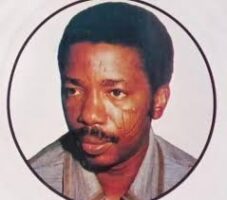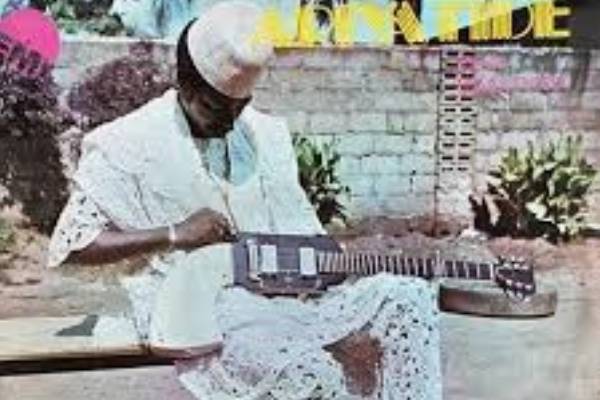Few names resonate in Juju music history like Ahuja Bello, the guitarist and vocalist who carved a niche for himself in the golden era of the genre.
Born Ismaila Dele Bello on 24 August 1942 in Iseyin, Oyo State, he rose to prominence in the 1970s and 1980s, delighting fans with his unique style and energetic performances. Here are highlights of his remarkable journey.
1. From Iseyin to the Music World
Ahuja Bello was born in Iseyin, a culturally rich town in Oyo State. Growing up amid traditional Yoruba rhythms, he absorbed the sounds of drums, chants and folk music, all of which later influenced his career as a Juju musician.








2. A Passion that Started Early
Music was not just a pastime for Bello — it was a calling. From a young age, he was drawn to the guitar and mastered it with relentless practice, setting himself apart in an era filled with budding Juju talents.
3. The Birth of “Ahuja Bello”
He crafted the stage name Ahuja Bello, a catchy identity that would become widely recognised across the South-West.
The name evoked familiarity and quickly established him as a household figure in Juju music circles.
4. Rising with Juju in the 1970s
The 1970s marked the turning point in his career.
At a time when Juju music was fast gaining popularity, Bello’s fresh sound and vocal depth made him stand out among emerging stars, opening doors to fame and wider recognition.
5. A Star of the 1980s
By the 1980s, Ahuja Bello had cemented his place among the greats.
His records, live shows, and stage charisma placed him in the company of Juju legends.
He was admired not just for his music but also for the joy and energy he brought to every performance.
6. A Guitar Maestro
His guitar skills were one of his greatest trademarks.
Fans recall the intricate riffs and lively string play that defined his sound, often making his music instantly recognisable.
He was not just a singer, but a true instrumentalist.
7. Cultural Voice Through Music
Beyond entertainment, Bello used his music to celebrate Yoruba traditions and values.
His songs often echoed themes of morality, unity and social commentary, earning him respect as both an artist and a cultural custodian.
8. Hit Songs that Defined His Career
Some of Bello’s most memorable songs include “Oro Ayo,” “Eroki Special,” “Ariya Kuye,” and “Ewa Lobinrin.” These tracks captured everyday realities, moral lessons and the celebratory essence of Yoruba culture, ensuring they remained evergreen among Juju lovers.
9. Albums That Stood Out
He recorded several albums during his career, among them “Emi ni Ahuja,” “Late Oba Abdu Ganiyu Oyewusi,” “Oro Ayo,” and “Eroki Special.” These works showcased his creativity and strengthened his reputation in the competitive Juju music landscape.
10. Electrifying Stage Performances
Ahuja Bello knew how to work a crowd. His electrifying performances, backed by his band, were a spectacle — blending music, rhythm and showmanship in ways that kept audiences dancing late into the night.
11. Legacy in Juju Music
Although he did not achieve the same global reach as contemporaries like King Sunny Ade or Chief Ebenezer Obey, Bello’s influence remains undeniable. His body of work inspired many younger Juju musicians and helped sustain the genre’s popularity.
12. An Evergreen Icon
Today, decades after his peak, Ahuja Bello is still remembered by fans and Juju enthusiasts as a pioneer who left an enduring mark. His music continues to be played, enjoyed and cherished, keeping his legacy alive for future generations.
Ahuja Bello’s life was a celebration of rhythm, culture and artistry.
His songs remain part of Nigeria’s Juju music heritage, a timeless reminder of an era when the genre ruled the dancehalls and airwaves.





